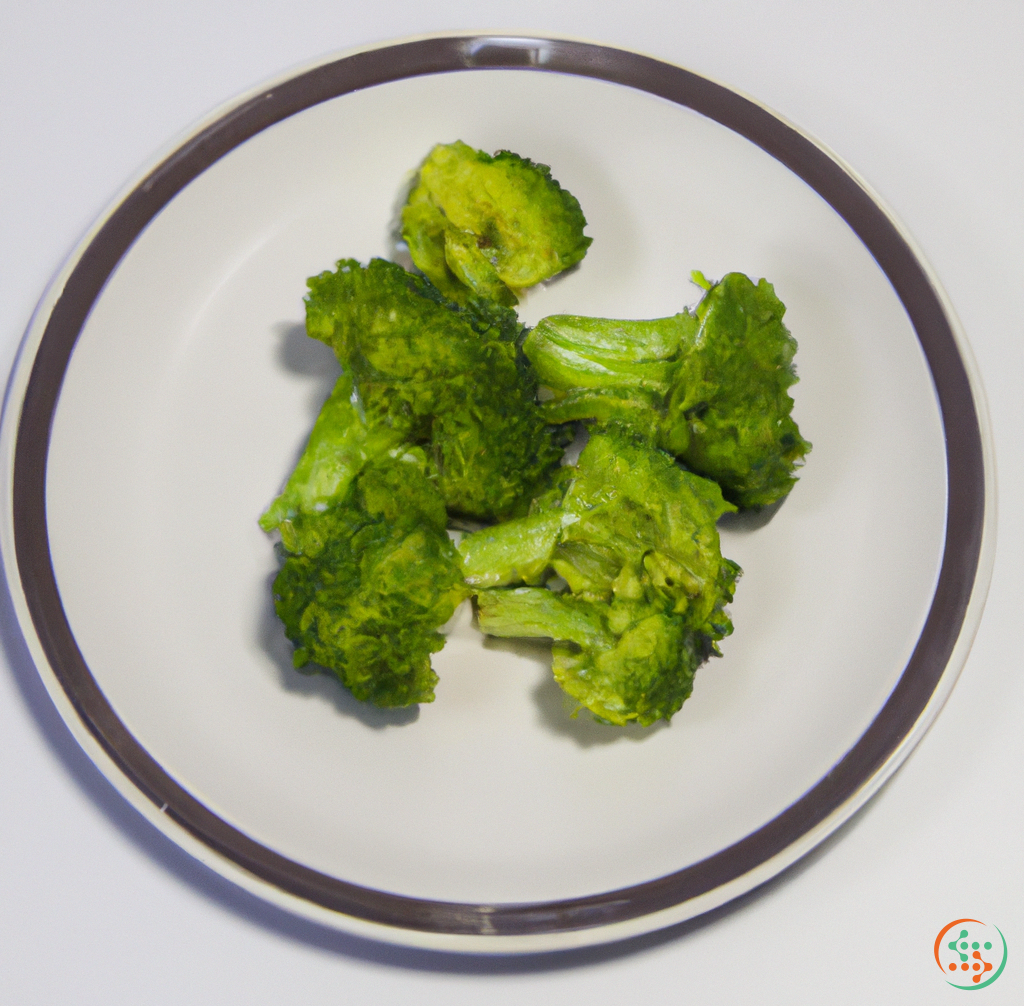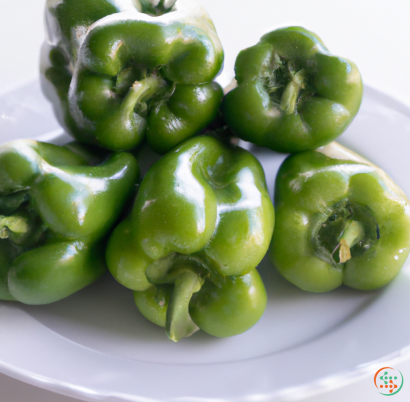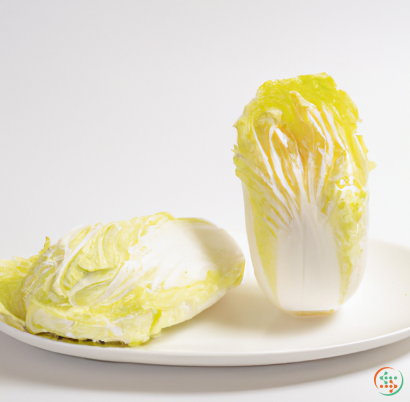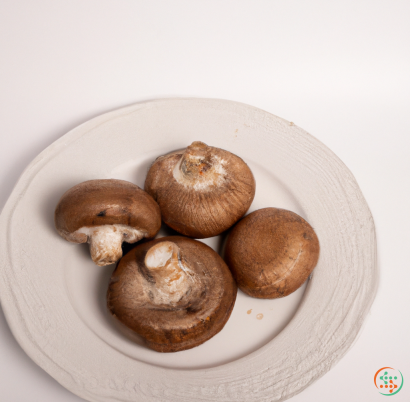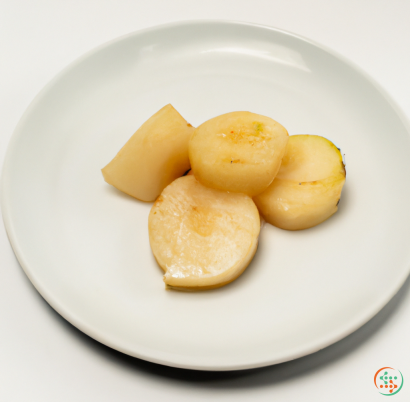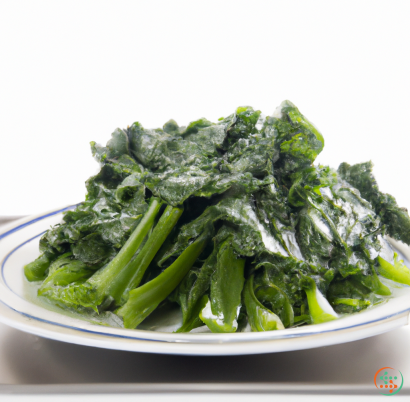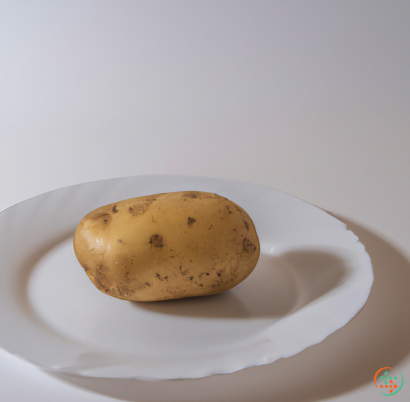Cooked Broccoli
What Is Cooked Broccoli?
Cooked broccoli is a vegetable that has been heated to a certain temperature. It can be steamed, boiled, microwaved, stir-fried, or roasted. Cooked broccoli is a popular side dish, topping for salads, and ingredient in pastas, casseroles, and other dishes.
Broccoli is a type of cruciferous vegetable, which belongs to the Brassica family. It is related to cauliflower and kale. It is a powerhouse of nutrition and provides a wide range of health-promoting benefits.
Nutritional Benefits of Cooked Broccoli
Cooked broccoli is a good source of several essential vitamins and minerals. It is an excellent source of dietary fiber and a good source of protein. It contains moderate amounts of calcium and iron, and small amounts of vitamins A, C, and K.
Broccoli also contains compounds known as carotenoids, which are renowned for their antioxidant activities. Broccoli contains a higher concentration of carotenoids than most other vegetables. The most abundant carotenoid present in cooked broccoli is beta-carotene.
Broccoli is also a rich source of sulfur-containing compounds known as glucosinolates. Glucosinolates are precursors of isothiocyanates and indoles, two groups of compounds with chemopreventive activities.
Health Benefits of Eating Cooked Broccoli
The nutrients in cooked broccoli may have numerous health benefits, including the following:
Improved Immune Function: The antioxidants present in cooked broccoli can help support a healthy immune system by fighting free radical damage.
Cardiovascular Support: Cooked broccoli may also help support healthy cholesterol levels and reduce the risk of heart disease.
Cancer Prevention: Many studies suggest that eating cooked broccoli may help reduce the risk of certain types of cancer, including breast, lung, stomach, and colorectal cancer.
Digestive Health: The dietary fiber present in cooked broccoli can help promote regularity and the healthy functioning of the digestive system.
Bone Health: The calcium, magnesium, and vitamin K in cooked broccoli may help improve bone health and reduce the risk of osteoporosis.
How To Cook Broccoli
The healthiest way to cook broccoli is to steam it. To do this, fill a pot with a few inches of water and bring it to a boil. Add the cleaned, trimmed, and cut broccoli florets to a steamer basket and place it in the pot. Cover the pot and reduce the heat to a simmer. Let the broccoli steam until it is tender-crisp, about 5 minutes.
You can also boil or stir-fry the broccoli. If boiling, make sure not to overcook it. Boil it for 2-3 minutes, or until it is tender-crisp. When stir-frying, use a wok and a small amount of oil or vegetable broth to sauté the broccoli. Make sure not to overcook the broccoli, as it will become limp and soggy. Cook it until it is tender-crisp, about 5 minutes.
Roasting broccoli is a great way to bring out its natural sugars and give it a slightly crisp texture. Preheat the oven to 450°F. Toss the broccoli with a small amount of cooking oil, salt, and pepper. Place the broccoli on a baking tray lined with parchment paper and roast for about 15 minutes, or until the edges just start to brown.
Conclusion
Cooked broccoli is a nutritious vegetable that offers a wide range of health benefits. It is an excellent source of dietary fiber and a good source of protein. It is also rich in antioxidants and compounds with chemopreventive activities. Cooked broccoli can help support a healthy immune system, cardiovascular system, and even reduce the risk of certain types of cancer. It is easy to prepare in a variety of ways, including steaming, boiling, stir-frying, or roasting. Adding cooked broccoli to your diet is a great way to enjoy a nutritious and delicious side dish or ingredient.
Cooked Broccoli - From Farm to Plate
Broccoli is a popular vegetable with a mild, nutty flavor highly prized by many consumers. It is a cruciferous vegetable, which falls in the same genus as Brussels sprouts, kale, and cabbage, and it has been eaten for centuries. In its cooked form, broccoli provides a crunchy but tender texture and can be prepared in a variety of delicious ways. But how does broccoli make its way from the farm to our dinner plate? In this blog post, we’ll explore the process of cultivating and cooking broccoli, as well as the journey it makes to ultimately reach our plates.
Harvesting Broccoli
The first step in the journey of cooked broccoli is harvesting. Broccoli grows best when seeded in the late spring and harvested in the late summer. This can vary slightly depending on the location and growing conditions, but it is generally best to harvest broccoli right before it begins flowering so that it is at its most tender and flavorful stages. To begin the harvesting process, the head of broccoli (or the “crown”) is removed with a sharp knife, leaving the remaining stalk attached. The stalk should be left attached to prevent the remaining florets from drying out and becoming woody in texture.
After harvesting, the broccoli is sent to a facility for cleaning and trimming. Typically, stems are trimmed back and leaves are removed, while dirt, debris and any insect damage is inspected and removed. Finally, an optional “crown cut” may be performed, which removes large florets from the crowns and exposes the edible buds beneath. This is the most efficient way to harvest broccoli, since larger florets can take longer to cook.
Packaging and Transport
Once the broccoli is cleaned, trimmed and ready for consumption, it is carefully inspected for quality, color and size. Then, it is placed into plastic bags, boxes or trays, depending on where it is going. Broccoli is also sorted according to size and weight to ensure that consumers, restaurants and other buyers get the exact quantity they need.
After packing, the broccoli is prepared for transportation. Depending on the location and destination, it may be shipped via truck, rail, cargo ship or airplane. Regardless of the mode of transport, the broccoli is cooled and stored in refrigerated containers, which help to preserve its freshness and flavor.
Cooking the Broccoli
Once the broccoli arrives at its destination, it is prepared for cooking by being washed and cut. The individual florets are cut into even pieces to ensure uniform cooking, while any large stem pieces are reserved for another use. To prevent the florets from losing color and nutrients, it is important to use boiling water and cook the broccoli quickly.
When cooked, the broccoli turns a vibrant green hue, and its nutty flavor is brought out. Boiling is the most common way to cook broccoli, but it can also be steamed, microwaved, pan-fried or roasted. Each method yields different results, so it’s a good idea to experiment to find out what you like best.
Serving the Broccoli
Once the broccoli is cooked, it is ready to be served. Depending on the recipe, the broccoli may be served as is, added to a dish, or served with a sauce or dip. When served in a dish, it is best to avoid overcrowding the broccoli, as this can prevent it from cooking evenly. When served as a side dish, broccoli can be combined with other vegetables, such as carrots, asparagus or cauliflower, to make a colorful and flavorful medley.
In addition to its flavor and texture, cooked broccoli also provides a range of vitamins and minerals, making it an excellent nutritional choice. This includes vitamin A, vitamin C, manganese and calcium, which can all benefit our health in various ways.
Conclusion
Broccoli can be an incredibly delicious and nutritious addition to any meal. From its beginnings in the soil, to its harvest, packaging and transport, to its preparation and presentation, there is a lot that goes into getting a cooked broccoli from the farm to our dinner plates. Whether boiled, steamed, microwaved, pan-fried or roasted, cooked broccoli makes a great side dish, or addition to a variety of dishes. So the next time you’re enjoying cooked broccoli, take a moment to think about the journey it has taken to get there.
| Vitamin A | 0.077 mg | |
| Beta-Carotene | 0.929 mg | |
| Vitamin E | 0.00145 grams | |
| Vitamin K | 0.1411 mg | |
| Vitamin C | 0.0649 grams | |
| Vitamin B1 | 0.06 mg | |
| Vitamin B2 | 0.12 mg | |
| Vitamin B3 | 0.55 mg | |
| Vitamin B4 | 0.0401 grams | |
| Vitamin B5 | 0.62 mg | |
| Vitamin B6 | 0.2 mg | |
| Vitamin B9 | 0.108 mg |
| Calcium | 0.04 grams |
Daily Value 1.3 g
|
| Iron | 0.67 mg |
Daily Value 0.018 g
|
| Magnesium | 0.021 grams |
Daily Value 0.4 g
|
| Phosphorus | 0.067 grams |
Daily Value 1.25 g
|
| Potassium | 0.293 grams |
Daily Value 4.7 g
|
| Sodium | 0.041 grams |
Daily Value 2.3 g
|
| Zinc | 0.45 mg |
Daily Value 0.011 g
|
| Copper | 0.06 mg |
Daily Value 0.9 mg
|
| Manganese | 0.19 mg |
Daily Value 0.0023 g
|
| Selenium | 0.0016 mg |
Daily Value 0.055 mg
|
| Fluoride | 0.004 mg |
Daily Value 0.004 mg
|
| Tryptophan | 0.034 grams | |
| Threonine | 0.096 grams | |
| Isoleucine | 0.092 grams | |
| Leucine | 0.147 grams | |
| Lysine | 0.155 grams | |
| Methionine | 0.043 grams | |
| Cystine | 0.031 grams | |
| Phenylalanine | 0.116 grams | |
| Tyrosine | 0.06 grams | |
| Valine | 0.138 grams | |
| Arginine | 0.2 grams | |
| Histidine | 0.063 grams | |
| Alanine | 0.114 grams | |
| Aspartic Acid | 0.329 grams | |
| Glutamic Acid | 0.549 grams | |
| Glycine | 0.101 grams | |
| Proline | 0.111 grams | |
| Serine | 0.129 grams |
| Glucose | 0.49 grams |
|
| Fructose | 0.74 grams |
|
| Sucrose | 0.08 grams |
|
| Total Sugars | 1.4 grams |
per 100g
|
| Palmitic acid (16:0) | 0.06 grams |
|
| Stearic acid (18:0) | 0.01 grams |
|
| Behenic acid (22:0) | 0.01 grams |
|
| Total Saturated fatty acids: | 0.08 g | |
| Oleic acid (18:1) | 0.03 grams |
|
| Palmitoleic acid (16:1) | 0.01 grams |
|
| Total Monounsaturated fatty acids: | 0.04 g | |
| Linolenic acid (18:3) | 0.12 grams |
|
| Linoleic acid (18:2) | 0.05 grams |
|
| Total Polyunsaturated fatty acids: | 0.17 g | |
